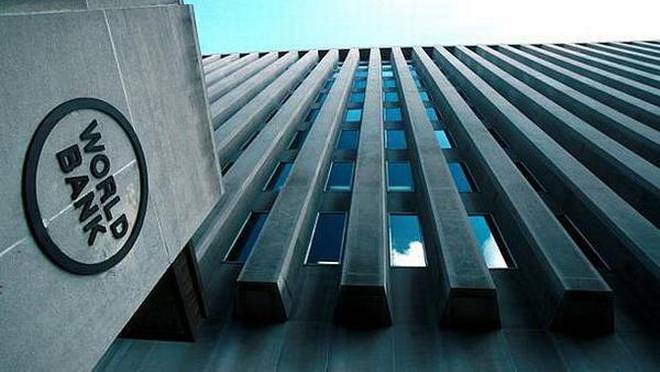The good news — the new chairman of MahaRERA, Ajoy Mehta, cleared 107 cases in a single day (on Monday). A number of cases were put back to the complainant’s court, with the option of conciliation with the builder.

The bad news — litigants and lawyers are upset that their cases were set aside for conciliation without them even being informed about the same. Now, MahaRERA expects them to hold negotiations again, where the developer is represented by lawyers, and litigants’ lawyers are not allowed to participate.
CA Ramesh Prabhu, the founder of MahaSeWA said, “For the first time in the history of MahaRERA, the entire bench consisting of Ajoy Mehta, chairman, with member no. 1 Dr. Vijay Satbir Singh, conducted hearings for 107 matters on May 10. The chairman and Member 1, both also requested the parties to go to a conciliation forum and explore settling the matter.”
“If parties say that compromise has failed, then the matters are adjourned to the new date as per the seniority — first filed, first held — of the complaint. The best part is that sufficient opportunities are given to both the parties to express their opinions, and the parties who agree for conciliation are referred to the conciliation forum. This is the best way to dispose of the pending complaints,” said Prabhu.
Prabhu added, “I submitted to the bench that in the conciliation forum, authorised representatives or their advocates are not permitted to appear. The clients want an advocate to represent them before the MahaRERA or conciliation bench. If such facilities are not given, our clients are not sure as to what needs to be discussed.

“There are more than 15 conciliation benches spread across Maharashtra. The home buyers also look for quick redressal at less cost which can be provided by conciliation benches. A conciliation bench needs to have a system of framing the issues, to document both sides’ concerns and then try to mediate on each issue to reach a compromise.
Thereafter consent documents must be signed by both sides, and have to be endorsed by the conciliation bench. This will boost the confidence of litigants and developers to approach the conciliation bench before going to MahaRERA bench. This also will reduce pending complaints with MahaRERA,” Prabhu added.
But advocate Godfrey Pimenta, who practices in MahaRERA, said, “While filing the complaints online either in Form A (jurisdiction with MahaRERA Authority) or Form B (jurisdiction with Adjudication Officer claiming compensation under Section 12, 14, 18 and 19 of RERA) a choice is given to complainants, whether they wish go for conciliation. In majority of cases after payment of Rs 5,000 filing fee, the complainants refuse to opt for conciliation.”
“In the context of this background the referring of matters to conciliation is not proper. Conciliation mediation is only voluntary and cannot be foisted against the will of the complainant. The matter will be dragged further and thereby there will be a delay in justice” explained Pimenta.
Advocate Anil D’Souza, secretary, MahaRERA Bar Association said, “The advocates of the Bar Association have a list of more than 110 matters, filed between February – December 2020, which are awaiting the first hearing. The cases filed by the litigants directly with MahaRERA in this same period could be even more. MahaRERA must audit all pending matters, especially those pending for the first hearing, and ensure that the cases move in a chronological sequence. Instead of having multiple conciliation benches, the authority should appoint more adjudication benches.”

Vijay Kumar Madhavan, 61, who had invested in an under construction project in Chembur, is still awaiting the outcome of his conciliation verbal directives passed by MahaRERA last October. “I had filed my plea before MahaRERA for delayed possession. The conciliation meeting was called by the developer’s lawyer later, and I stood by my contention, which I have always expressed to the developer even through my letters and legal notice, which went unheeded. But even after many months passed, my conciliation/grievance remains unresolved. I wonder if RERA was introduced for common man.”
Advocate Vinod Sampat, president of Cooperative Societies Residents, Users & Welfare Association, said, “If the builder defaults on his timelines and misuses the funds, he is rarely punished as MahaRera is becoming more and more of a paper tiger. Emphasis is on completion of the project rather than hardships of allottees. Execution proceedings don’t have the punch. There are no restrictions that will act as a deterrent for developers who move around in costly cars and have a lavish lifestyle.” “If MahaRERA has to be respected, it should have more teeth. The law needs to be amended so that criminal proceedings are initiated against developers. RERA does not have a mechanism to weed out erring builders. Allottees have to suffer when matters go for conciliation as they lose on time, money and energy besides fees. Allottes’ resources are scarce compared to the builder, and lawyers/consultants of builders and allottees should be allowed in conciliation proceedings,” Sampat said.

He also said that all hearings as well as conciliation proceedings should be downloaded on the MahaRERA website to boost the confidence of allottees and prospective purchasers.











